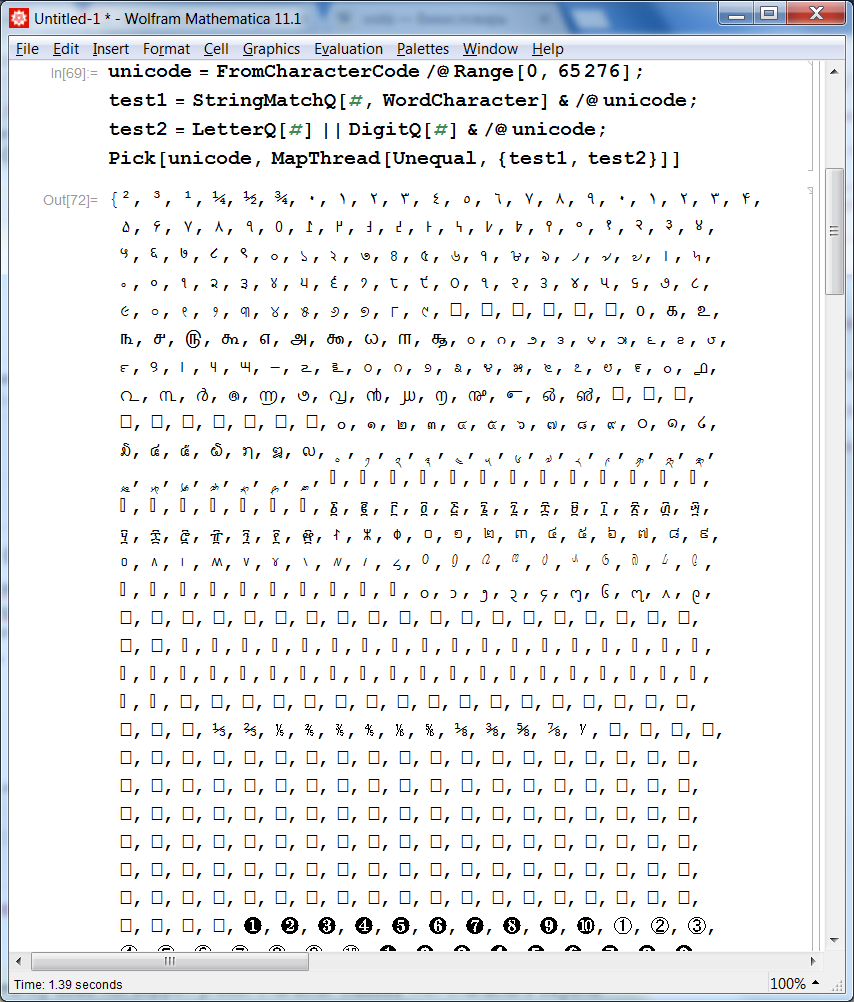According to the documentation of WordCharacter:
WordCharactermatches any character for which eitherLetterQorDigitQyields True.
However, the results of the following code seem not compatible with the doc:
StringMatchQ[#, WordCharacter] & /@ {"a", "1", ".", " ", "中", "あ"}
LetterQ[#] || DigitQ[#] & /@ {"a", "1", ".", " ", "中", "あ"}
{True, True, False, False, True, True}
{True, True, False, False, False, False}
I suppose there is a special rule to handle CJK characters, so it's the doc which should be corrected, am I right?
(As the motivation of this "discovery", I was trying to match any characters not belong to CJK.)


WordCharacterdoes not not match any character which neitherLetterQnorDigitQmatches. $\endgroup$LetterQis only usable for the Latin and Greek alphabets, and even then only the letters that exist in English and modern Greek.StringMatchQrelies on the PCRE library, so it considersWordCharacterwhatever PCRE does. This extends at least to some other alphabets/character types. $\endgroup$